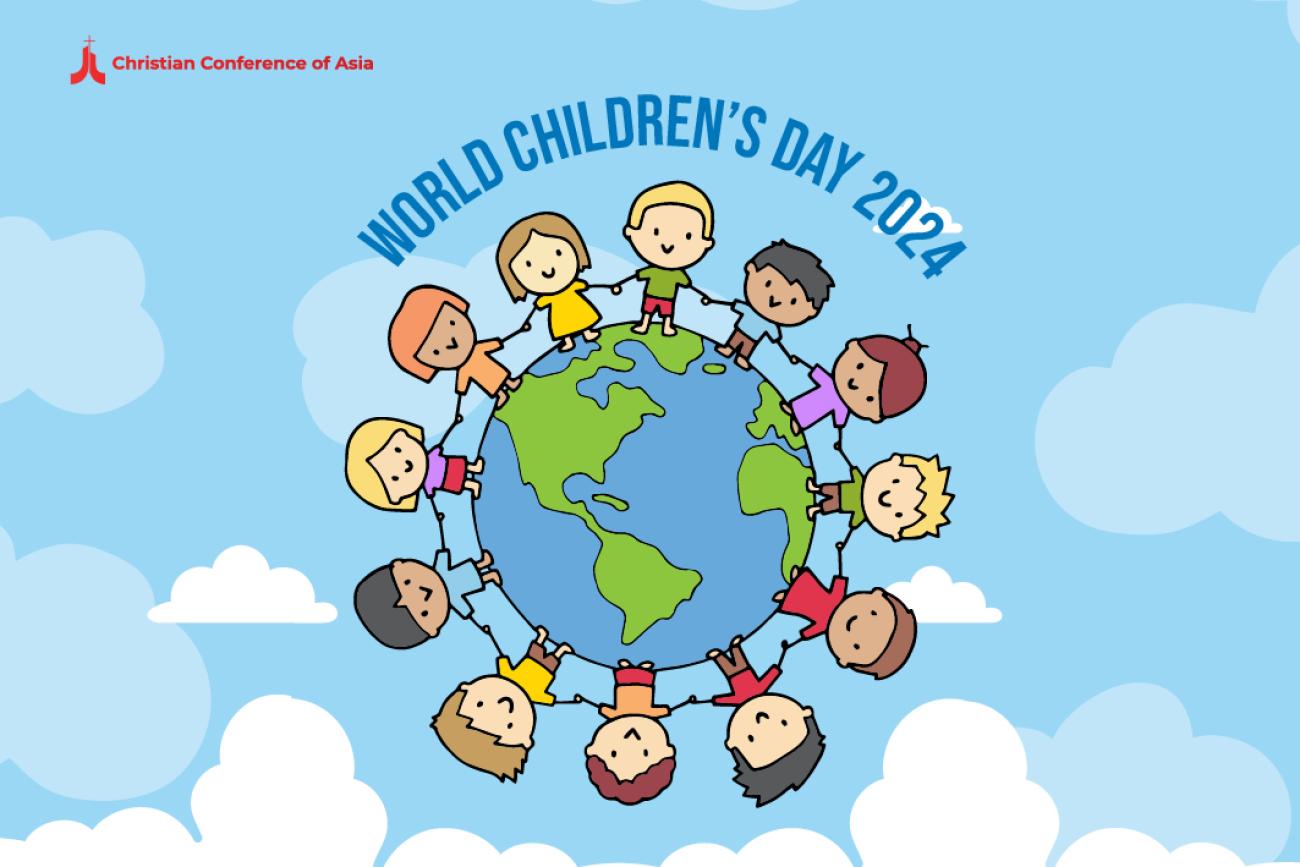CCA reaffirms commitment to upholding children’s rights on World Children’s Day 2024

Chiang Mai, Thailand: On World Children’s Day, Christian Conference of Asia (CCA) has reaffirmed its dedication to advocating for the rights, and well-being of children across Asia.
Observed annually on 20 November, this day serves as a call to amplify children’s voices and reaffirm global commitments outlined in the United Nations Convention on the Rights of the Child (CRC).
In a statement released today, CCA General Secretary Dr Mathews George Chunakara highlighted the challenges faced by millions of children in Asia, including inadequate education and healthcare, exploitation, forced labour, trafficking, and discrimination, particularly in conflict and emergency settings.
Underscoring the paramount role of the Church in affirming the dignity and rights of children, the CCA General Secretary stated, “The Church must uphold their rights, listening with patience, compassion, and respect, advocating for a world that protects and nurtures children. We believe that churches in Asia can make a transformative impact by advocating for accessible education and healthcare, implementing child protection policies, fostering inclusive, violence-free communities, and creating platforms where children’s voices are valued and taken seriously”.
Dr Mathews George Chunakara urged CCA member churches and councils to create safe spaces for children, foster inclusive communities, and advocate for accessible education and healthcare. “Through partnerships with families, communities, and organisations, the Church can ensure that children are heard, their dignity upheld, and their potential realized”, he added.
To strengthen its advocacy for the well-being of children, the CCA, through its Action Together in Combating HIV and AIDS in Asia (ATCHAA) programme, will hold a consultation from 28 November to 1 December 2024 to address HIV in children and teens in Asia. The consultation will focus on enhancing church responses to the issue and bring together about 40 participants, including church workers, health professionals, PLHIV networks, social activists, and NGO representatives working in the field of HIV and AIDS.
The full text of the CCA General Secretary’s Statement on World Children’s Day can be found here:










